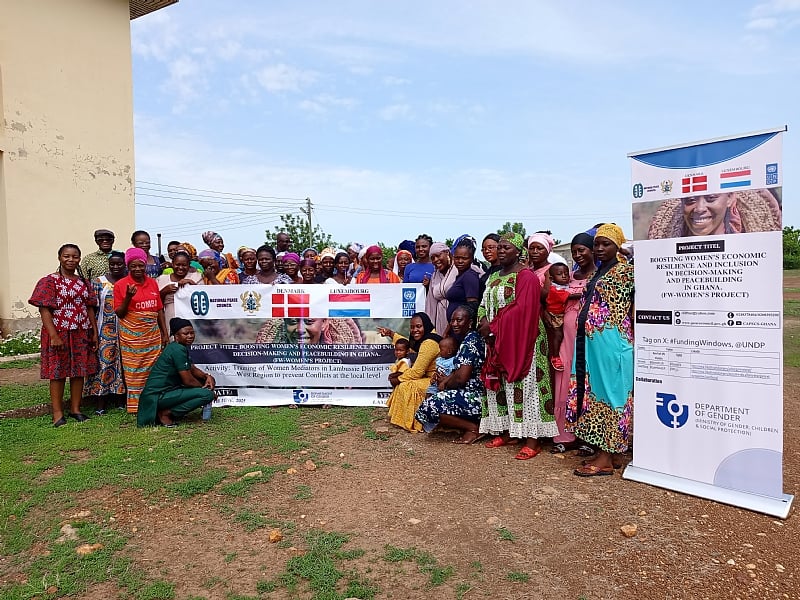The Upper West Regional Peace Council (UWRPC) has held a three-day capacity-building workshop aimed at equipping women with mediation and leadership skills in Lambussie, the district capital.
The training, which took place from 10th to 12th June, forms part of the FM-Women’s Project—“Boosting Women’s Economic Resilience and Inclusion in Decision-Making and Peacebuilding in Ghana.”
The project is sponsored by the UNDP in partnership with the governments of Denmark and Luxembourg, and implemented through the Ministry of Gender, Children and Social Protection’s Department of Gender.
Speaking at the opening ceremony, Mr. Clifford Tampuori, Executive Secretary of UWRPC, disclosed that women’s participation in decision-making remains low in Lambussie and West Gonja Districts, according to recent findings.
“This training is about equipping women not just with skills, but with the confidence and tools to take up leadership roles and actively participate in local governance and peace processes,” he stated.
Participants were drawn from groups such as Christian Mothers, Women in Agriculture Platform (WAP), Ahmadiyya Muslim Women, Catholic Women and Men, and Fulbe Women, received in-depth training on gender concepts in peacebuilding, conflict analysis, and the roles and responsibilities of mediators.
Theodora Williams Anti, Executive Director of the Foundation for Security Development in Africa (FOSDA) and facilitator of the training, emphasized the importance of using local experiences to understand the root causes of conflict and promote non-violent resolution strategies.
A key outcome of the workshop is the selection of 30 women for a mentorship program. These individuals, especially those interested in contesting for assembly or political positions, will be groomed further and supported to lead dialogue sessions with traditional leaders, opinion leaders, and security personnel in their communities.
Rev. George Apasera, a Council member, encouraged participants to embrace mediation over court litigation. “Women are disproportionately affected during conflict, but they also hold the key to healing. You must take the lead,” he said.
The training concluded with strong commitments from participants to engage more deeply in peacebuilding efforts and inspire others to do the same.


